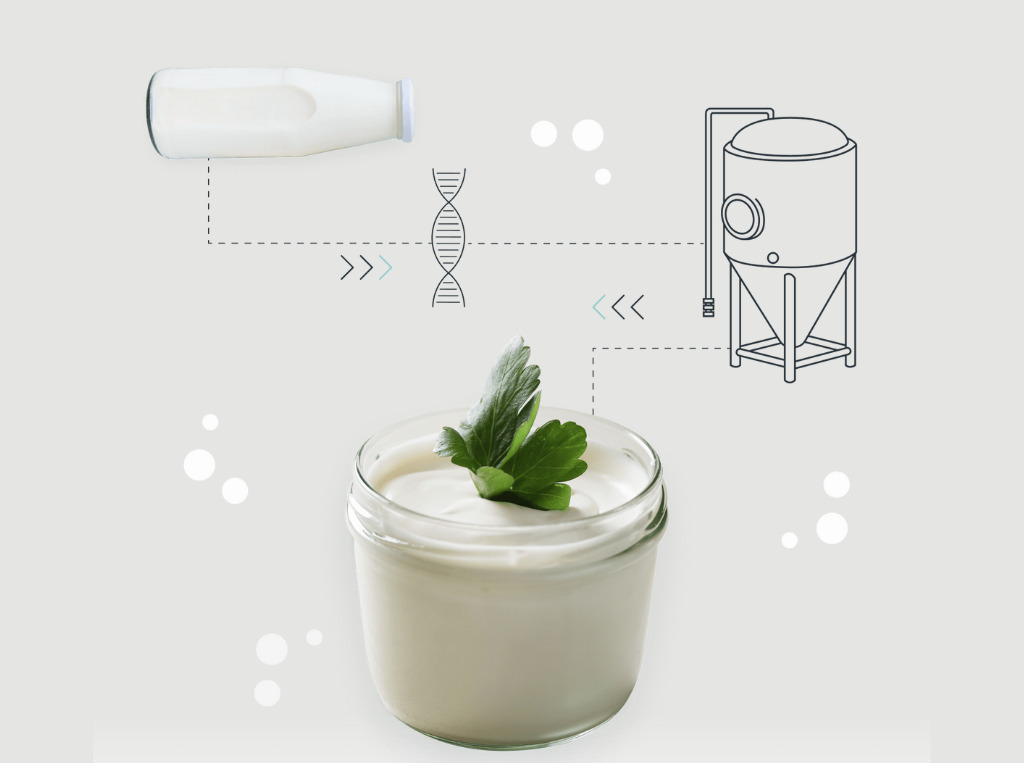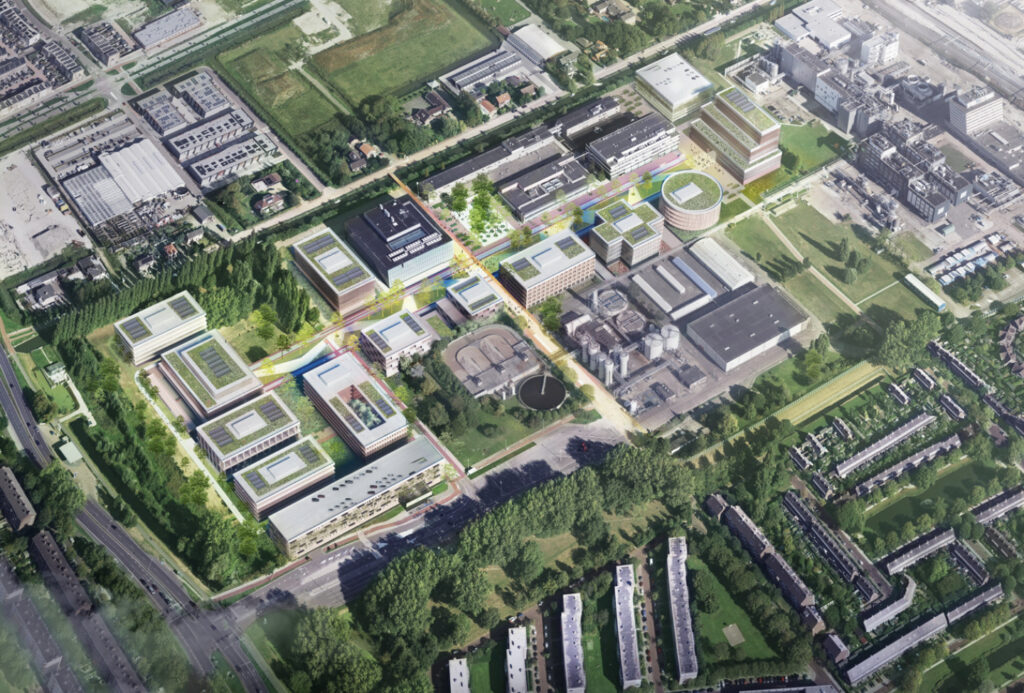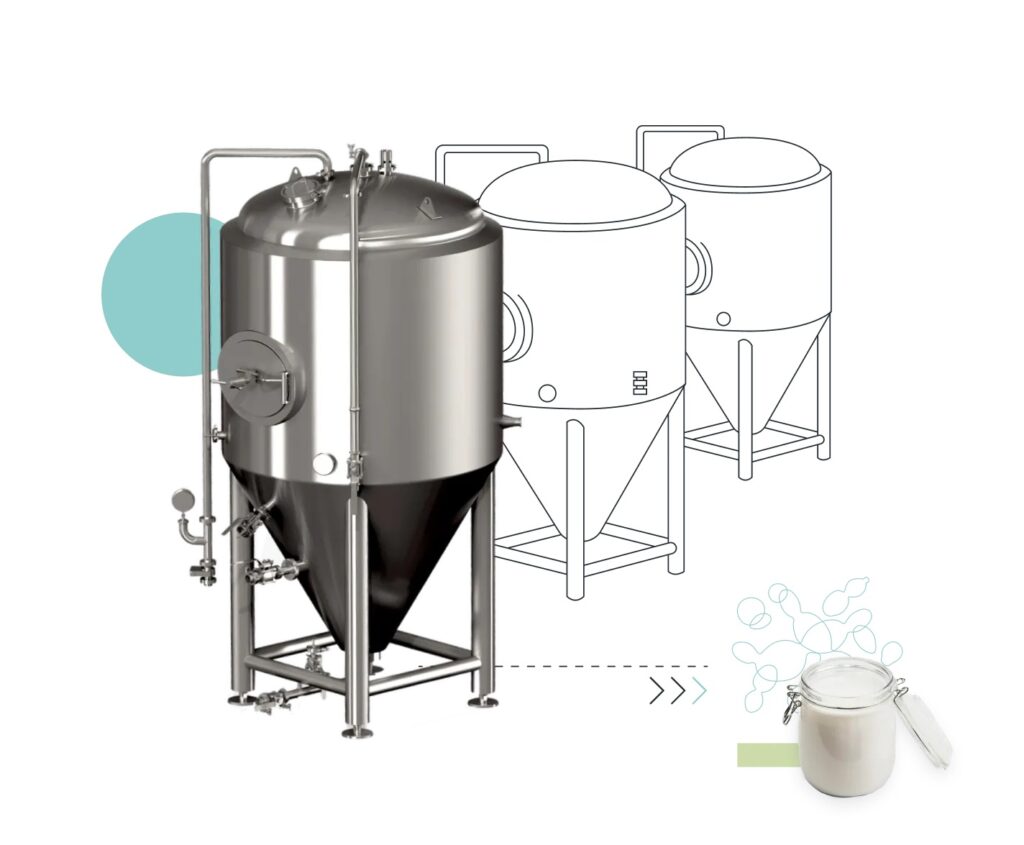
Dutch B2B ingredients company Vivici has announced it has successfully scaled up its platform to produce animal-free beta-lactoglobulin – the chief whey protein found in dairy. The company hopes to earn US regulatory approval by 2024, which is also when it aims to launch the ingredient.
Two months after closing a seed funding round to bring its precision-fermented dairy proteins to market, Vivici says its precision fermentation whey will allow leading food and drink manufacturers to improve their animal-free offerings.
Beta-lactoglobulin is the major whey protein found in cow’s and sheep’s milk – whey itself accounts for about 20% of the proteins in dairy. Vivici claims that beta-lactoglobulin is nutritionally superior to most proteins, and boasts gelling, foaming and emulsification properties that help provide enhanced mouthfeel and texture to a range of food and beverage applications.
The company is headquartered at the Biotech Campus Delft and has a dairy protein application lab in the Food Valley at NIZO food research, utilising the scaling-up facilities and investment climate the Netherlands offers. It’s remaining tight-lipped on the exact applications it’s working on, but says it’s ready to support its B2B customers with their formulation needs.

Aiming for regulatory approval
Beta-lactoglobulin is the same whey protein that has been commercialised by US precision fermentation pioneer Perfect Day, and produced by Israeli startup Remilk. In April, the latter became the first precision-fermented dairy company to gain regulatory approval in Israel, which followed clearance in Singapore. It also received a ‘no questions letter’ from the FDA in the US, the second company to do so after Perfect Day. Now, Vivici is also looking to earn approval in the US, which it aims to do by 2024 when it also plans to release the animal-free beta-lactoglobulin to market.
“We are certainly on track, if not slightly ahead of our original timeline,” Vivici CEO Stephan van Sint Fiet told Dairy Reporter. “We now have the ability to provide potential customers with food-grade sample material for evaluation.”
Marcel Wubbolts, Vivici’s CTO, said in a statement: “I am excited to share this notable milestone in our journey. This not only accelerates our pace but positions us firmly on track to scale further. We are proud of the progress made by our team that has done an exceptional job in developing a robust production strain, and process from upstream fermentation through to downstream processing.”

The market potential for precision fermentation
Vivici was announced last year as a joint venture between startup venture backer DSM-Firmenich Venturing and dairy giant Fonterra, with an aim to commercialise animal-free dairy ingredients using intellectual property created by years of collaboration between DSM and Fonterra (who have filed patents for the same).
Fonterra is New Zealand’s largest dairy company and produces 30% of the world’s dairy exports, so the company’s move into the precision fermentation category signposts the potential of this industry. According to the alt-protein think tank the Good Food Institute, the fermentation sector has seen an investment of almost $4B to date, with at least 136 companies across the supply chain working on fermentation-based alt-protein as of 2022 – 62 of these are focused on precision fermentation.
Vivici was incorporated last December, after receiving approval from the EU Commission. It came months after the Netherlands poured €60M ($65.4M) into the cellular agriculture sector – the largest public investment into the space to date.
Earlier this year, Europe’s precision fermentation leaders formed a coalition to accelerate the regulatory approval of their dairy alternatives. These animal-free proteins can have a much lower impact on the environment than traditional dairy counterparts. For example, according to a life-cycle assessment by Perfect Day, its animal-free whey protein has 91-97% lower greenhouse gas emissions, 29-60% lower energy demands, and 96-99% of water consumption than conventional whey protein.
In March, Perfect Day also conducted a survey in partnership with the Hartman Group and Cargill, which found that 77% of US adults who said they were familiar with precision fermentation would likely purchase products from this category. It highlights the market potential for Vivici, which will be looking to launch in the US if it gains regulatory approval next year.
The post Big Dairy-Backed Vivici To Launch Animal-Free Dairy Whey Protein After Successful Scale-up appeared first on Green Queen.
This post was originally published on Green Queen.